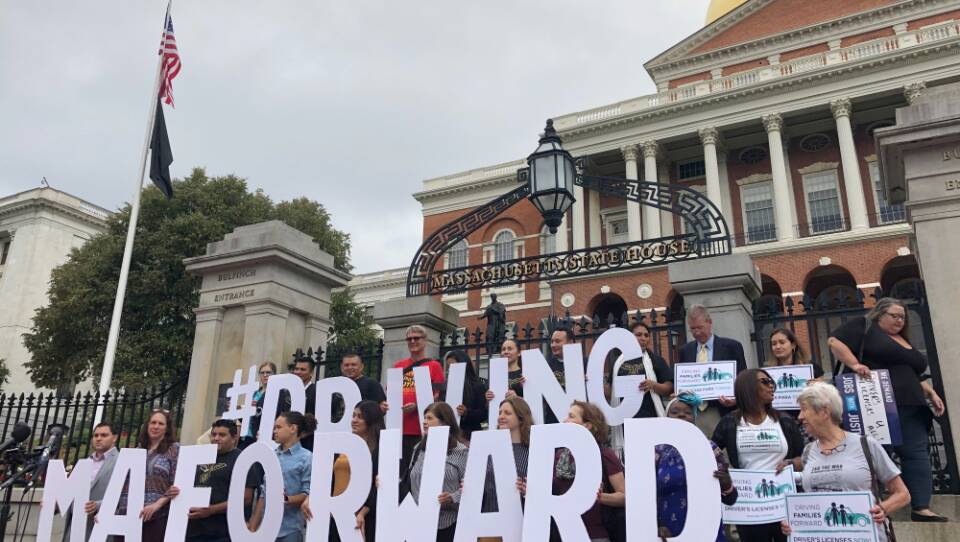It wasn't a party, but there was cake. Special cake hand delivered to the Speaker of the House, Robert DeLeo. Organizers of the group Movimiento Cosecha came up with the attention-grabbing stunt to promote legislation that would provide special driver's licenses for Massachusetts' undocumented residents — drivers now dodging police because of their illegal status.
It's scary enough to think about the huge number of distracted drivers steering the wheel while texting. Until recently, I hadn't thought about the hazards of untrained drivers. But 13 other states — including California and the District of Columbia — have done more than think about it. All have passed laws allowing undocumented drivers to carry restricted driver's licenses. That total also includes Illinois, Nevada and Utah, and the nationwide trend is growing. Both New York and Oregon signed off on driver's licenses for undocumented drivers in June of this year. Texas, Kansas, Minnesota and our own state are also discussing similar laws.
Here in the state, it's actually been a years-long discussion about the legislation, a bill called An Act Relative to Work and Family Mobility. The bill continues to be stuck in committee — i.e., blocked by leaders —which is what prompted this year's week-long protest from the immigrant advocacy group. According to the activists, the debate is actually 15 years old — something they liken to a quinceañera, the cultural celebration which celebrates a girl's 15th birthday.
But this political quinceañera was a mock celebration, a sober marker of the stalled legislation. One of the leaders of the protests, Worcester's Luis Vergara, urged lawmakers not to keep giving us false promises and to take action so that the bill can come to the floor for a vote. The thing is, more than a few people feel that people living here illegally aren't owed any promises. They see these proposed driver's licenses as an unearned gift and they predict the licenses will in fact incentivize illegal immigration, increase the potential for voter fraud, and cost the state many millions to administrate a separate, personal identification system.
To be clear, the driver's licenses for undocumented drivers are not the same as the ones issued to American citizens. They can't be used as an official I.D. and will be clearly marked. But the mere discussion of linking a legal process to people living here illegally stirs both legitimate anger at a seemingly unfair system, as well as bitter rage aimed at the immigrants themselves. Meanwhile, supporters point to the safety risks posed by thousands of unlicensed drivers — drivers without driver's ed training as the law would require, and without the required car insurance. Ironically, the law would also require them to show proof of residency.
State governments can't wait for a national immigration policy to address the everyday issues linked to people living in the shadows. A Pew Research report in June confirmed that 60,000 more undocumented residents have made their homes in Massachusetts during the last 10 years. And like it or not, their labor is critical to the state's healthy economy. Driver's licenses for the undocumented may just be the best right now solution — the most practical way to reduce the number of untrained drivers from either careening across highways or nervously cowering behind the wheel instead of keeping their eyes on the road.





